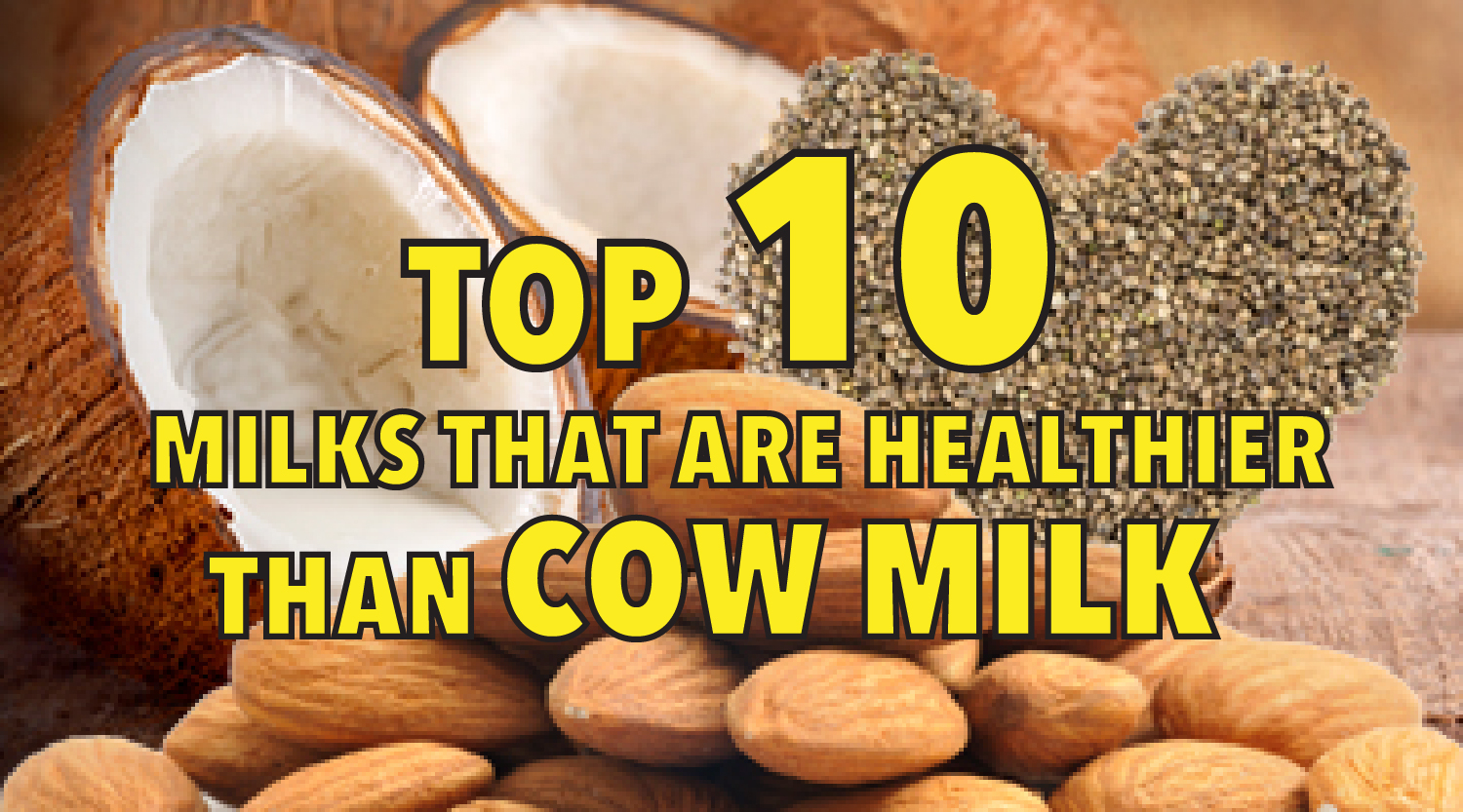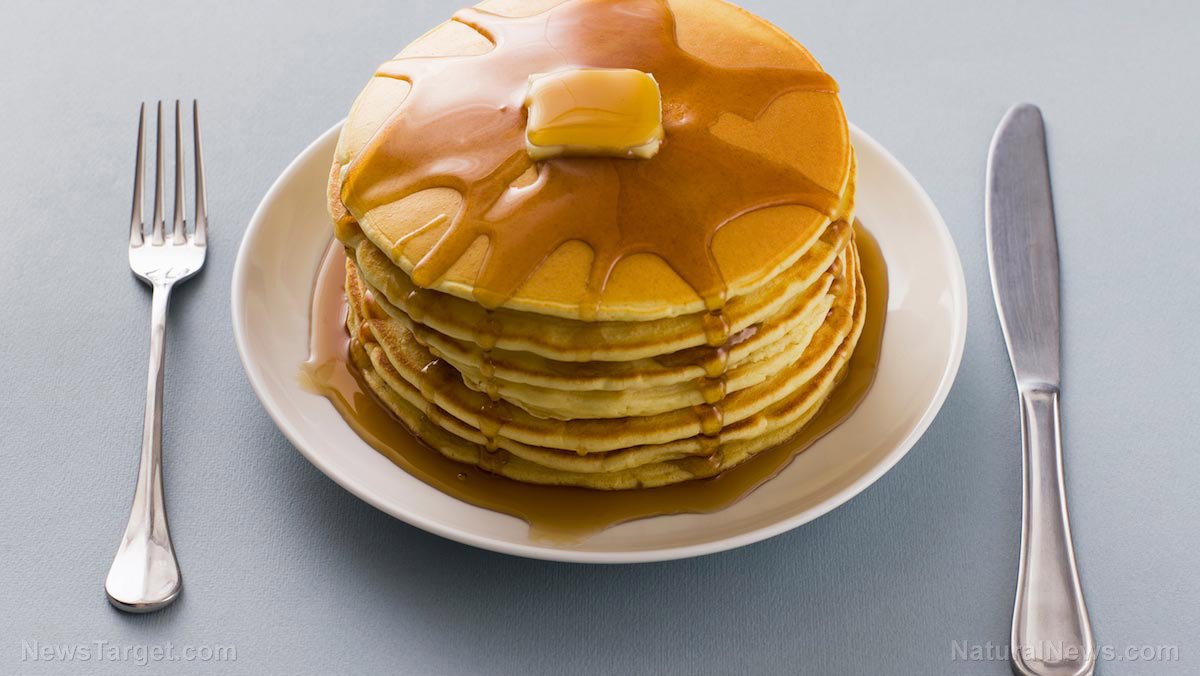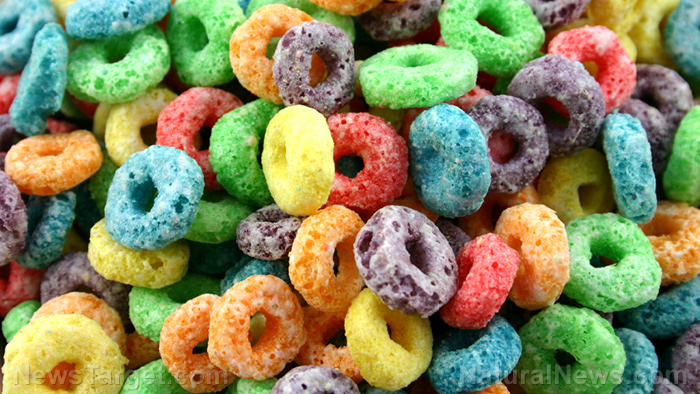Top 10 milks that are healthier than cow milk
08/28/2015 / By Carol Young

Dairy cow milk is one of the most widely produced and consumed milks in the world, yet dairy cows are also subjected to genuinely atrocious living conditions in factory farms. Discussing their poor and painful lives can make even the most committed milk drinker squeamish, so it is worth considering that these days there is a wide array of healthy alternatives to choose from, all of which are better for your personal health and for the health of the planet.
Included in our top 10 list of alternatives that are healthier than cow milk are sheep milk, goat milk and camel milk. It is always best to buy any animal milk from a farmer that you trust, and if you have a local farmer, you can even look into the welfare of the animals yourself. However, if you buy your sheep, goat’s or camel’s milk from a local grocer, do some research on the distributor to make sure they treat their animals ethically.
Interestingly, there has been a lot of debate about the connection between consuming cow’s milk and breast cancer. The research is ongoing, but if you need an alternative to cow’s milk, there are plenty of substitutes out there.
In any case, there are many healthier options that you can now add to your cereal (and maybe to your tea or coffee too!).
Hemp milk
Hemp milk is not as thick as soy milk, with a consistency more like that of skim milk than whole. The taste is slightly nutty without being overpowering; in fact, hemp milk complements all cereals very well. Hemp milk was named as one of Dr. Oz’s favorites in terms of milk alternatives.
Hemp milk is also incredibly good for you. Hemp seeds are full of omega-3 fatty acids (the alpha-linolenic acids, rather than the type found in fish oil) that help reduce blood pressure and cholesterol. Hemp milk is not as good a source of protein as soy milk, but its nutritional profile does include magnesium, phytosterols, beta-carotene, ascorbic acid, calcium, fiber, iron, potassium, phosphorus, riboflavin, thiamin and niacin. Be sure to avoid hemp milks that contain carrageenan, which is a thickening agent that causes inflammation.
Camel milk
If you were selling camel milk in the United States before 2009, you could have wound up being a convicted felon. Finally, after an appeal to the FDA by Dr. Hinkle, “camelids” were included in the dairy laws that govern the selling of milk. Camel’s milk can help with a wide range of health issues, including diabetes, autism and cancer. The story of how beneficial camel’s milk can be to humans is endlessly intriguing, and camels are known to be very personable and spunky animals. They make wonderful companions, as writer Robyn Davidson discovered in her memoir Tracks which is the story of traveling across the Australian outback with only a dog and a handful of camels, and, perhaps, some camel’s milk.
Another fascinating fact about camel milk is that it is similar to human mother’s milk. It is used to treat tuberculosis in Kazakhstan and HIV/AIDS in Somalia and Kenya.
Almond milk
Almond milk is a low-calorie substitute to cow’s milk that contains small amounts of heart-healthy monounsaturated fat. To avoid any added and fortified ingredients, you can make almond milk at home with a blender using raw almonds, water and a bit of sugar.
While nutritionally almond milk may be a good alternative to cow’s milk, there are some important issues to consider surrounding its production. Almonds require a lot of water to produce, and the only state that produces them commercially is California. That’s right, California, which is facing one of the most severe droughts on record. As with most natural disasters, the drought in California is hitting the poor the hardest.
Almond milk doesn’t have the ethical issues that cow’s milk does: i.e., mistreatment of animals, methane and other greenhouse gases, fertilizers, etc., but the ecological concerns of farming almonds cannot be ignored. For instance, king salmon in Northern California are being threatened by low river levels, as more water is diverted to thirsty almond farms. Due to the many issues stemming from almond milk production, it may be better to make this milk at home or find an alternative until the drought ends.
Almond milk warning: This friendly warning can apply to any alternative milk product. Look at the label for an ingredient called calcium carbonate. This is a way products are fortified with vitamins and are the nutritional equivalence of eating ground-up rocks. What you really want is an ingredient called calcium phosphate, which the body absorbs and digests better.
Goat milk
Goat milk is a bit higher in fats: calories, fat and saturated fat. But it has less sugar by one gram than cow’s milk. Goat milk also contains more calcium, magnesium, potassium, vitamin C, protein, vitamin A and vitamin D. Goat milk powder can be purchased to mix your own goat milk at home. Goat milk in a can and in the milk aisle is becoming widely available in many grocery stores.
Rice milk
Rice milk is usually made with brown rice and is a good option if you are lactose intolerant or if you are allergic to soy. Rice milk is said to be a good vegan substitute, but is not a great source of protein. Its consistency is less thick than that of soy or cow’s milk.
Hazelnut milk
If you are lactose intolerant hazelnut milk can be a good alternative. Hazelnut milk is made to have a texture similar to that of dairy cow’s milk. It is a bit thicker and creamier than other types of alternative milk. Hazelnut milk is relatively new on the market today, but there are already a few options available – chocolate, regular and blended with almonds. You may not know that it is quite easy to make your own hazelnut milk at home with water, hazelnuts, vanilla extract, Himalayan salt, maple syrup and, for a thicker milk, sunflower lecithin. You can even add chocolate to this recipe. Hazelnut milk is a great source of protein, dietary fiber, magnesium, B vitamins, antioxidants, calcium, iron, zinc, oleic acid, vitamin E and heart-healthy fats. Hazelnut milk tastes great with coffee!
Flax milk
Flax milk is a good source of omega-3 fatty acids. The omega-3s come from the cold-pressed flax oil; these omega-3s are known to help prevent many diseases including cancer, heart disease and diabetes. Flax milk does not contain trans fat, cholesterol, lactose, saturated fat, soy or gluten. It is typically low-calorie but can come in varieties that are more caloric including sweetened flax milk and vanilla flax milk. Do not rely on flax milk as a source of protein.
Oat milk
Oat milk is full of fiber compared to the other milk substitutes. One Swedish study showed that oat milk may lower LDL (bad) cholesterol. The study found that even oat milk that was deprived of insoluble fiber has these cholesterol-reducing properties. Oat milk can be made at home with steel cut oats, sea salt, cinnamon, maple syrup and a bit of vanilla extract. All you need is a blender and a fine sieve (in addition to some measuring spoons/cups, bowls and containers like mason jars). You need to soak the oats for about 20 minutes before blending all of your ingredients together, and then finally you drain the milk through the sieve to separate the oat pulp. Homemade oat milk won’t contain thickeners or emulsifiers, and you’ll lessen your environmental footprint if you have these ingredients stocked in your kitchen already.
Sheep milk
Sheep’s milk has more protein, carbs, fat, vitamin C, vitamin B12, folate, calcium and magnesium than its dairy-cow equivalent. Sheep’s milk is the fourth most produced milk in the world behind cow, buffalo and goat. It is a highly nutritious milk and contains cancer-fighting ingredients such as conjugated linoleic acid (CLA). Sheep’s milk can be frozen and stored; even freezing the milk does not affect its cheese-making abilities.
Coconut milk
Coconut milk is rich in fiber, vitamins C, E, B1, B3, B5 and B6, and minerals like iron, selenium, sodium, calcium, magnesium and phosphorus. It is also lactose-free and very healthy.
Bonus milk:
Cashew milk
Cashew milk is creamy, low-calorie, rich in calcium and can easily be made at home. All you need to do is take some cashews (no need to pre-soak them) and blend them with water, sweetener, and some salt. You may also add a pinch of cinnamon for a little spice and flavoring. If you have issues with candida, do not consume large amounts of cashew milk, as cashews are high in bacteria and mold that can produce mycotoxins in the body.
Sources:
Submit a correction >>
Tagged Under:
cow milk, dairy, food alternatives, lactose intolerance, nutrition, plant-based milk
This article may contain statements that reflect the opinion of the author
RECENT NEWS & ARTICLES
COPYRIGHT © 2017 TOP 10 GROCERY SECRETS





















